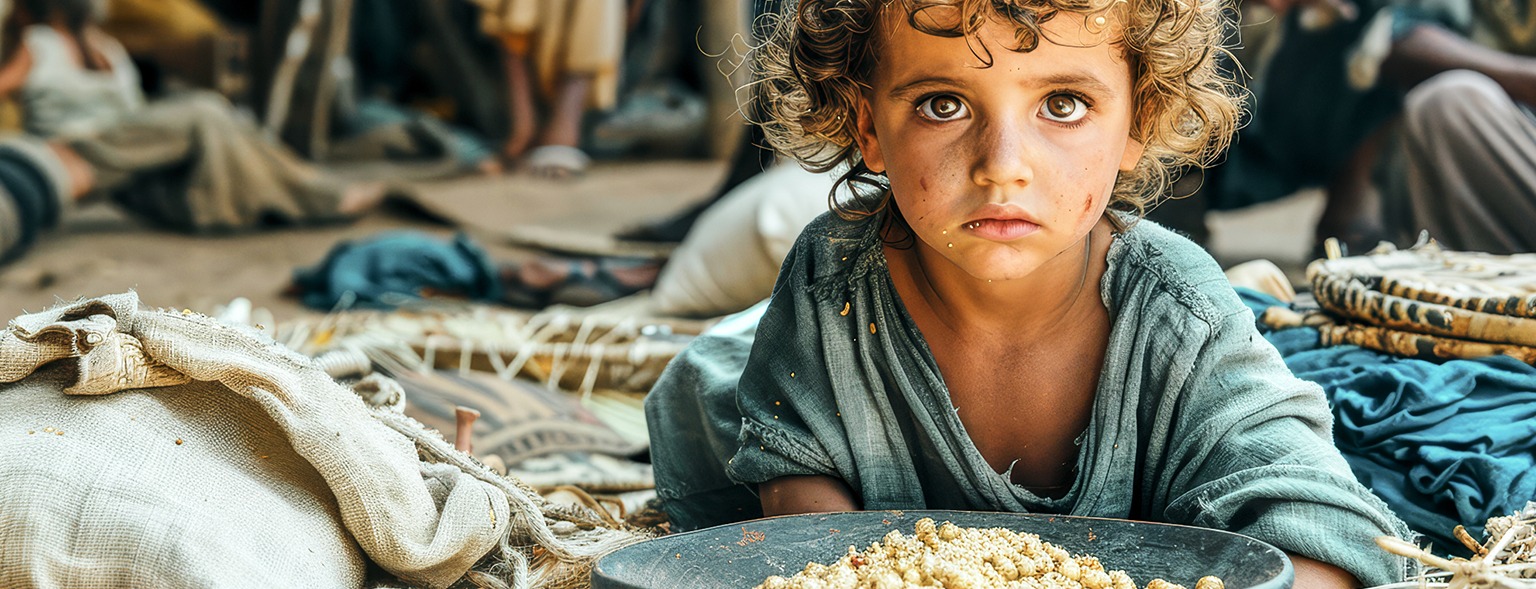Before the read
When profit and politics take priority, even lifesaving aid becomes disposable.
Systems built to protect wealth often ignore those who can’t afford to eat.
Yes—and the numbers reveal a disturbing pattern of injustice and neglect.
“It’s not a food desert; it’s food apartheid,” said Karen Washington, a prominent community organizer and co-founder of Rise & Root Farm. It’s not that there is less food in the world to go around; rather, it’s the unfair distribution of food through a profit-mongering system designed to control and cause chaos.
The recent order by President Trump to incinerate around 1.1 million pounds of emergency high-energy biscuits for the United States Agency for International Development (USAID) shocked many. That’s 500 metric tons of food that could feed 1.5 million children for a week. These biscuits are sitting at a warehouse in Dubai, waiting for a slow and unnecessary death. Why did the Trump administration wait on the aid biscuits long enough for them to expire? The State Department asserts that the food meant for the children of Afghanistan and Pakistan would have actually benefited the terrorists in the region. They also claimed that this represents only a small percentage of the food that is distributed by USAID every year. Why not distribute the aid somewhere else before it expires, for example, to the starving children and families in Gaza? A former USAID official stated that these biscuits were ideal emergency food for Gaza, as the people there lack cooking facilities and essential supplies.

When Virginia Senator Tim Kaine asked Michael Rigas, the deputy secretary of state for management and resources, about this debacle, he replied, “I don’t have an answer for that question, senator. I’m as distressed about that as you are.” According to a statement by Connecticut Democratic Rep. Rosa DeLauro, “There is no greater example of waste than spending taxpayer dollars on lifesaving aid and then refusing to deliver that aid for so long, it spoils and must be incinerated.”
Such incomprehensible decisions highlight how economic and political priorities often outweigh the urgent needs of millions suffering from hunger worldwide.
Cultural Significance and History of Food Scarcity and Wastage
Despite these global failures, many cultures have long recognized the moral imperative of avoiding waste. Growing up in Pakistan, we were not allowed to waste food. Religiously and culturally, it was an abomination. If you had leftover food on a plate, it would go to the birds, pets, and so forth. And if there was excess food because of a special occasion, our parents would share it with the house help, neighbors, or relatives. We have concepts of “langars” (community kitchens) in Pakistan and India, where community meals are served to anyone who comes there. There is a strong cultural drive to ensure that food reaches all, especially the less fortunate.
Food waste has evolved significantly over time—from pre-industrial societies where food wastage was seen as a moral failing to the colonial era, where food was exported without considering local shortages. Then came the Industrial Revolution, where mass production increased food output and led to overproduction because preservation techniques were inadequate. During the post-World War II era of industrial agriculture and mass consumer culture, food production generated massive waste. Overproduction, poor storage, and long-distance transport turned a moral concern into a global issue. By the early 2000s, roughly 19 percent of global food production was wasted annually.
The Economics of Starvation
Demand for food is rising as people continue to die of hunger from a manufactured global food crisis. According to the UN Hunger Report, 2023/24, 783 million people are trapped in a global hunger crisis. In addition, 2.3 billion people experience moderate to severe levels of food insecurity. From Sub-Saharan Africa to Western Asia, including Yemen and Sudan, food shortages are extreme. The United Nations’ sustainable development efforts to achieve the Goal of Zero Hunger by 2030 are abysmally malnourished.
Capitalism plays a huge role, as the global food system prioritizes profit over people’s needs. Countries rich in resources might still face hunger because they are forced to export crops for profit instead of feeding their own populations. Capitalists create monopolies through the privatization of essential goods and services. They would rather destroy surplus food than share or lower the prices, because that would reduce profit margins. Workers are exploited and are given minimum wages that don’t even support basic needs. Big corporations take advantage of underdeveloped yet resource-rich nations by illegally invading their lands on the pretext of war and national security, extracting wealth, usurping resources, and leaving the local population impoverished. We often blame natural disasters and poor harvests for famine; the real culprits are systems that breed inequality, conflict, and exploitation.
Broken Aid Systems
Global aid efforts are often fragmented, inefficient, or influenced by political agendas, leaving many communities without the help they truly need. The decision to cancel USAID due to alleged inefficiency comes at a time when international aid programs are already gasping for air. The Lancet Medical Journal has warned that this decision could result in an additional 14 million deaths by 2030. UN’s humanitarian coordination office spokesperson Jens Larke claims that the needs are rising faster than the money coming in. From $1.7 billion funding in 1999 to requiring more than $100 billion by 2027, humanitarian needs are rapidly progressing while political agendas dictate never-ending wars and conflict in unstable lands. Climate disasters are fiercer and uncontrollable. Humanitarian aid efforts are inefficient, lack transparency, and are unsustainable. Without a proper way to measure their impact and identify core, structural failures, aid programs need much more than aid to do their bidding.
Policy Overhaul
While everyone agrees that the system needs to change, there is no clear direction. From addressing short-term emergencies to long-term policy overhauls in governments, there is no single cure-all for a global humanitarian system that is fundamentally fractured and acts simply as a band-aid. In May 2016, a UN conference of nine thousand delegates pledged to increase funds to national nongovernmental organizations (NGOs) that are more effective and cheaper. However, in many cases, these NGOs begin doing the government’s work, such as hospitals and infrastructure, and are forced to remain for decades doing work that is beyond their scope and funding.
Sorcha O’Callaghan, from the Overseas Development Institute, states, “It’s a political crisis that is resulting in people going hungry. Why are humanitarians having to step into the breach to deliver services?”
Empathy over Indifference
It’s easy for the rich and powerful to make big, bold promises about ending world hunger and world peace—just ask the countless Miss World contestants who’ve made it sound so simple. But reality invokes sordid imagery of a world where injustice is rampant and happy endings are restricted to fairy tales. We live in a world where the rich continuously exploit nations and people who deserve the help the most. These same manipulative capitalist systems give money to rich countries and make it difficult for poorer nations to access credit. The result? Numerous catastrophic implosions where countries self-destruct. They become overly dependent on foreign aid, drown in loans, and cripple their infrastructures, leading to widespread poverty and famine that multiply over time.
In these moments laced with doom and hopelessness, it is important to be aware and cognizant of the systems and governments we are a part of. Even in the face of overwhelming injustice, our small actions can trigger change. We reclaim our power from these broken, morbid systems when we choose empathy over indifference. Whether we feed one hungry neighbor or support a cause that fights inequity, it’s important to make choices with intention and integrity.
More by this author
The Wrap
- Over 500 tons of emergency food were ordered for destruction instead of being redirected to starving populations.
- Aid programs, like the USAID case explored, are often compromised by political agendas and bureaucracy.
- The global hunger crisis affects 783 million people, largely due to systemic inequality, not food shortages.
- Food waste and inequality are symptoms of a capitalist system that prioritizes profit over feeding the hungry.
- Cultural and religious traditions worldwide often promote food sharing, yet modern systems ignore these values.
- Climate disasters, conflict, and broken aid systems contribute to worsening food insecurity worldwide.
- Choosing empathy over indifference—through action or awareness—can push back against injustice.































